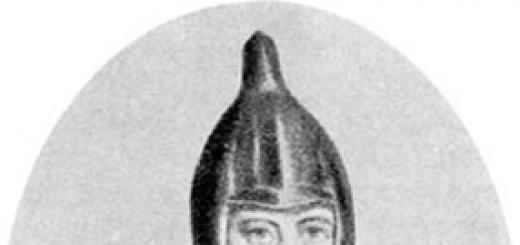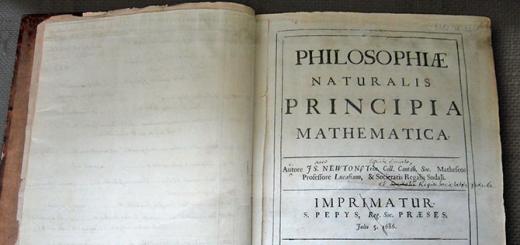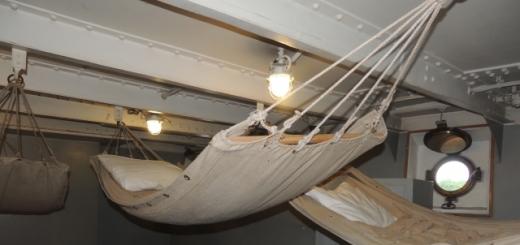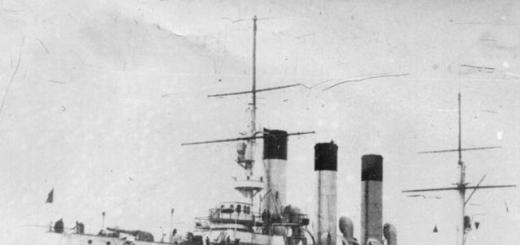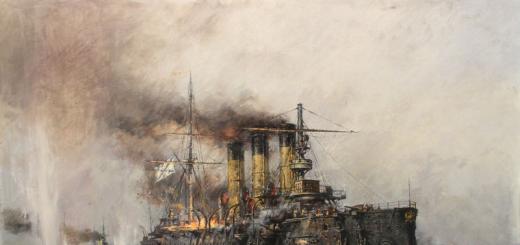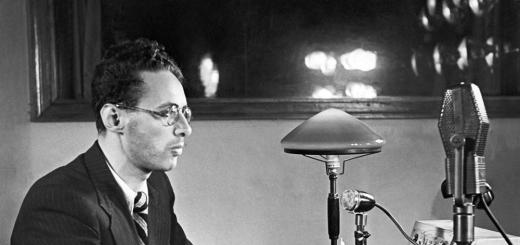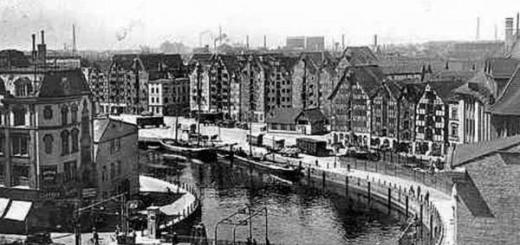
Suvorov military schools

Cadet corps

Boarding school for pupils of the Ministry of Defense of the Russian Federation
Nakhimov Naval
School choice
Military institutions, schools for girls: a choice for the brave!
Who said that military universities are not needed for girls? Modern women are no less courageous in their actions and choices than men. Therefore, the country provides for an increase in the number of military institutions for girls.
Previously, girls were not admitted to military educational institutions. The bulk of the pupils of the Nakhimov and Suvorov schools were children from low-income families, orphans and children of military personnel.
Years pass and times change along with human outlook on life. It was once said that a woman who was on a warship was necessarily a hundred percent herald of military defeat.
Only today, women have become far from being as defenseless and weak as a man might seem at first glance. Now the female half of the earth's population declares itself, expressing indignation at the inequality. However, not in all countries this has grown into a feminist movement.
Our country is a real example, where girls do not talk aimlessly and senselessly, but show themselves in practice. They jump with parachutes without the slightest hesitation, fly into outer space, are workers in mines and transform into military men. A large number of girls aspire to serve in the armed forces.
Military universities for girls are still a necessity in our country. This is due to the fact that there are two fronts in the armed forces - these are headquarters and military units. Although, nevertheless, when we hear the phrase “armed forces”, we are used to imagining that it should be just tanks, military exercises and machine-gun fire, which thousands of young guys make.
Accordingly, the work in headquarters units is similar to office work, only it is connected with military papers and supervision of military units. Therefore, it is very advisable for this work to invite young girls and women who will cope perfectly with the duties of a telephone operator, radio operator, deal with economic issues or be translators. Moreover, this type of work is distinguished by favorable conditions regarding medical care and planned holidays.
However, there are more courageous women who do an excellent job in the service in military units. They can be successful officers or ensigns. Military schools for the girls who are their pupils prepare excellent reserve units. Such women are sometimes difficult to distinguish by character from men. Most often, they are very harsh and strict, which allows them to perform their duties at a decent level and keep all young and inexperienced soldiers in discipline. As it turns out, it is possible to choose a specialty of a military nature for a woman, since a very wide choice is provided. Surely everyone who wants to find that institution and direction of military activity, which will be a new stage in her life for her.
Studying at military faculties, girls and boys get the opportunity to acquire knowledge not only in the military field, but they also learn foreign languages, the science of psychology, cartography, finance and others. In addition to the fact that military institutions for girls provide them with a profession more than worthy, there is an adaptation to constant discipline, as well as to fire training.
Another advantage of military institutions is guaranteed employment. After young people graduate from one of the military universities, they do not face the question of a constant job search and work experience, because, without exception, everyone is provided with a pretty good job to start with.
It is much easier for girls to enter a military university after graduating from a military school. Then they take representatives of the female part of the population willingly. After graduating from a military university or institute, the girl receives a military specialty and a civilian one, as well as a profession and an officer rank. Such prospects look quite tempting.
State support is provided in full order to students of military institutions, so worries about material wealth will be an exception. Girls, just like boys, will learn how to fold AK, according to the order to develop a drill step and walk along the parade ground, etc. Five-year training in the chosen specialty, regardless of gender, will become mandatory, so that the country can compensate for the state costs for the education provided . However, it is very difficult to scare our girls with this, and those who really wanted this and dreamed of a conscious life will go to study at a military educational institution without hesitation.
Another small nuance is the prohibition to get married while the girl is studying in the first two courses. If a female representative decides to go on maternity leave during training and give birth to children, she will be immediately expelled. However, few girls are ready to sacrifice such an opportunity.
Military schools and cadet corps of Russia
Today, more than ninety-five thousand women are serving in the Russian army, and this, in turn, is 8.5% of the total number of the Armed Forces. The last decade shows that over time, the number of women who want to become military personnel does not decrease at all, but on the contrary, the trend only increases its momentum.
Of course, not every military institution can take a woman into their upbringing, but many of them nevertheless abandoned stereotypes and are in full swing training the representatives of the fragile sex, who seem so only at the beginning.
It is always worth striving for your dream, even though it may seem almost unattainable. You need to be persistent and constantly prove yourself, with which our women have successfully coped.

The history of military schools to prepare the younger generation for military service began more than 300 years ago. In those days, the great reformer of Russia, Peter I, who was well aware of the degree of threats to the Russian state, decided to create the first Navigation school - with the aim of preparing young men for the renewed and reformed Russian army. The priority goals in the training of cadets were education in the spirit of devotion to the Fatherland, a sense of duty, the formation of a system of moral and spiritual values, civic responsibility and a patriotic-state outlook. Already under Anna Ioannovna, a whole network of cadet corps was opened, which served as a prototype for modern military educational institutions with the same name. During the Great Patriotic War, the Suvorov Schools, created by the decree of I.V. Stalin, and a little later, the Nakhimov Schools, were added to them.
List of schools
To date, 22 educational institutions supervised by the Ministry of Defense of the Russian Federation operate in the system of secondary military education. Among them are 7 presidential cadet schools, 8 Suvorov schools, 4 cadet corps, as well as 1 Nakhimov naval school, 1 military music school and 1 boarding school for girls of the Ministry of Defense of the Russian Federation.
Presidential cadet schools
(for children of servicemen and civilians in the service of the Armed Forces of the Russian Federation, as well as children left without support from their parents and orphans)

Suvorov military schools

Cadet corps

Boarding school for pupils of the Ministry of Defense of the Russian Federation- the only military corps for girls, created in 2008. Now it provides full and comprehensive training for 545 cadets from grades 5 to 11, including the widest block of additional education - music, art, sports education, dance, 3 foreign languages.
Nakhimov Naval- the famous, established in 1944, a military school for future sailors and a home harbor for many current admirals and rear admirals (including the heroes of Russia). For Nakhimov students, already during the period of study, sea voyages and ship practice are the norm, and the constant participation in military parades on Red Square is due to the best drill training of cadets among all the secondary schools in Russia.
Moscow military musical(1981) - another unique and one of a kind military school in Russia, transformed from the 2nd Moscow military music school (1937). The main advantage of the school is a fantastic teaching staff, including honored artists, winners of international music competitions, conductors, members of the Union of Composers of the Russian Federation, soloists of the best orchestras in the country, who at one time also studied within its walls.
School choice
The choice of secondary school should be made, relying, first of all, on one's readiness to devote one's life to the service of the Fatherland, regardless of the hardships of many years of military and garrison life. And only secondarily - focusing on the specifics of a particular school or corps, as well as on the conditions of admission.
Unlike non-military schools and technical schools, students do not face the problem of housing and food - in connection with which this issue, which is important when entering other educational institutions, does not affect the choice.
The history of military schools to prepare the younger generation for military service began more than 300 years ago. In those days, the great reformer of Russia, Peter I, who was well aware of the degree of threats to the Russian state, decided to create the first Navigation school - with the aim of preparing young men for the renewed and reformed Russian army. The priority goals in the training of cadets were education in the spirit of devotion to the Fatherland, a sense of duty, the formation of a system of moral and spiritual values, civic responsibility and a patriotic-state outlook. Already under Anna Ioannovna, a whole network of cadet corps was opened, which served as a prototype for modern military educational institutions with the same name. During the Great Patriotic War, the Suvorov Schools, created by the decree of I.V. Stalin, and a little later, the Nakhimov Schools, were added to them.
List of schools
To date, 22 educational institutions supervised by the Ministry of Defense of the Russian Federation operate in the system of secondary military education. Among them are 7 presidential cadet schools, 8 Suvorov schools, 4 cadet corps, as well as 1 Nakhimov naval school, 1 military music school and 1 boarding school for girls of the Ministry of Defense of the Russian Federation.
Presidential cadet schools
(for children of servicemen and civilians in the service of the Armed Forces of the Russian Federation, as well as children left without support from their parents and orphans)

Suvorov military schools

Cadet corps

Boarding school for pupils of the Ministry of Defense of the Russian Federation- the only military corps for girls, created in 2008. Now it provides full and comprehensive training for 545 cadets from grades 5 to 11, including the widest block of additional education - music, art, sports education, dance, 3 foreign languages.
Nakhimov Naval- the famous, established in 1944, a military school for future sailors and a home harbor for many current admirals and rear admirals (including the heroes of Russia). For Nakhimov students, already during the period of study, sea voyages and ship practice are the norm, and the constant participation in military parades on Red Square is due to the best drill training of cadets among all the secondary schools in Russia.
Moscow military musical(1981) - another unique and one of a kind military school in Russia, transformed from the 2nd Moscow military music school (1937). The main advantage of the school is a fantastic teaching staff, including honored artists, winners of international music competitions, conductors, members of the Union of Composers of the Russian Federation, soloists of the best orchestras in the country, who at one time also studied within its walls.
School choice
The choice of secondary school should be made, relying, first of all, on one's readiness to devote one's life to the service of the Fatherland, regardless of the hardships of many years of military and garrison life. And only secondarily - focusing on the specifics of a particular school or corps, as well as on the conditions of admission.
Unlike non-military schools and technical schools, students do not face the problem of housing and food - in connection with which this issue, which is important when entering other educational institutions, does not affect the choice.
The history of military schools to prepare the younger generation for military service began more than 300 years ago. In those days, the great reformer of Russia, Peter I, who was well aware of the degree of threats to the Russian state, decided to create the first Navigation school - with the aim of preparing young men for the renewed and reformed Russian army. The priority goals in the training of cadets were education in the spirit of devotion to the Fatherland, a sense of duty, the formation of a system of moral and spiritual values, civic responsibility and a patriotic-state outlook. Already under Anna Ioannovna, a whole network of cadet corps was opened, which served as a prototype for modern military educational institutions with the same name. During the Great Patriotic War, the Suvorov Schools, created by the decree of I.V. Stalin, and a little later, the Nakhimov Schools, were added to them.
List of schools
To date, 22 educational institutions supervised by the Ministry of Defense of the Russian Federation operate in the system of secondary military education. Among them are 7 presidential cadet schools, 8 Suvorov schools, 4 cadet corps, as well as 1 Nakhimov naval school, 1 military music school and 1 boarding school for girls of the Ministry of Defense of the Russian Federation.
Presidential cadet schools
(for children of servicemen and civilians in the service of the Armed Forces of the Russian Federation, as well as children left without support from their parents and orphans)

Suvorov military schools

Cadet corps

Boarding school for pupils of the Ministry of Defense of the Russian Federation- the only military corps for girls, created in 2008. Now it provides full and comprehensive training for 545 cadets from grades 5 to 11, including the widest block of additional education - music, art, sports education, dance, 3 foreign languages.
Nakhimov Naval- the famous, established in 1944, a military school for future sailors and a home harbor for many current admirals and rear admirals (including the heroes of Russia). For Nakhimov students, already during the period of study, sea voyages and ship practice are the norm, and the constant participation in military parades on Red Square is due to the best drill training of cadets among all the secondary schools in Russia.
Moscow military musical(1981) - another unique and one of a kind military school in Russia, transformed from the 2nd Moscow military music school (1937). The main advantage of the school is a fantastic teaching staff, including honored artists, winners of international music competitions, conductors, members of the Union of Composers of the Russian Federation, soloists of the best orchestras in the country, who at one time also studied within its walls.
School choice
The choice of secondary school should be made, relying, first of all, on one's readiness to devote one's life to the service of the Fatherland, regardless of the hardships of many years of military and garrison life. And only secondarily - focusing on the specifics of a particular school or corps, as well as on the conditions of admission.
Unlike non-military schools and technical schools, students do not face the problem of housing and food - in connection with which this issue, which is important when entering other educational institutions, does not affect the choice.
The history of military schools to prepare the younger generation for military service began more than 300 years ago. In those days, the great reformer of Russia, Peter I, who was well aware of the degree of threats to the Russian state, decided to create the first Navigation school - with the aim of preparing young men for the renewed and reformed Russian army. The priority goals in the training of cadets were education in the spirit of devotion to the Fatherland, a sense of duty, the formation of a system of moral and spiritual values, civic responsibility and a patriotic-state outlook. Already under Anna Ioannovna, a whole network of cadet corps was opened, which served as a prototype for modern military educational institutions with the same name. During the Great Patriotic War, the Suvorov Schools, created by the decree of I.V. Stalin, and a little later, the Nakhimov Schools, were added to them.
List of schools
To date, 22 educational institutions supervised by the Ministry of Defense of the Russian Federation operate in the system of secondary military education. Among them are 7 presidential cadet schools, 8 Suvorov schools, 4 cadet corps, as well as 1 Nakhimov naval school, 1 military music school and 1 boarding school for girls of the Ministry of Defense of the Russian Federation.
Presidential cadet schools
(for children of servicemen and civilians in the service of the Armed Forces of the Russian Federation, as well as children left without support from their parents and orphans)

Suvorov military schools

Cadet corps

Boarding school for pupils of the Ministry of Defense of the Russian Federation- the only military corps for girls, created in 2008. Now it provides full and comprehensive training for 545 cadets from grades 5 to 11, including the widest block of additional education - music, art, sports education, dance, 3 foreign languages.
Nakhimov Naval- the famous, established in 1944, a military school for future sailors and a home harbor for many current admirals and rear admirals (including the heroes of Russia). For Nakhimov students, already during the period of study, sea voyages and ship practice are the norm, and the constant participation in military parades on Red Square is due to the best drill training of cadets among all the secondary schools in Russia.
Moscow military musical(1981) - another unique and one of a kind military school in Russia, transformed from the 2nd Moscow military music school (1937). The main advantage of the school is a fantastic teaching staff, including honored artists, winners of international music competitions, conductors, members of the Union of Composers of the Russian Federation, soloists of the best orchestras in the country, who at one time also studied within its walls.
School choice
The choice of secondary school should be made, relying, first of all, on one's readiness to devote one's life to the service of the Fatherland, regardless of the hardships of many years of military and garrison life. And only secondarily - focusing on the specifics of a particular school or corps, as well as on the conditions of admission.
Unlike non-military schools and technical schools, students do not face the problem of housing and food - in connection with which this issue, which is important when entering other educational institutions, does not affect the choice.
The younger generation, like fledgling chicks, is ready to leave their native land. But for an independent life, getting a job with a salary sufficient for a normal life, you need education - technical, humanitarian, medical, and so on. Among the areas of modern education, a special place is occupied by military colleges and technical schools after grade 9.
Honorable duty to serve the Motherland
It is well known that in our country, getting a military profession is always a very commendable and respectful decision. Our time is no exception. From all sides there are either enemies, or seemingly friends, but so striving to take away part of the natural or human wealth. And also global terrorism, which today nests in almost every country. The unsettled state of the world increases the likely need for military power.
No matter how sad it may sound, but the military educational institutions of our country do not lose their fame and regularly attract an increasing number of applicants. To graduate from such a military institution is to guarantee yourself a job immediately with a decent salary, which is almost impossible to get in other areas of education. A military college after grade 9 is a good option for a future path.
The structure of military education
Military education in our country has a complex structure and is subdivided (in a simplified sense) according to the types of troops, according to the age of students and according to the level of training.
Regarding age (military education is the only place where the state officially allows en masse to study almost from infancy), here, depending on the number of years (up to 9 classes and immediately after graduation), there are Suvorov schools and Cadet corps. They differ significantly, although they are in the same area of military education. But in general, this is the same military college after the 9th grade.
First of all, you need to decide what are the pros and cons of military education, since it is so popular, unlike many other areas of study.

Benefits of getting a military education
Military education gives a courageous, difficult profession. Graduating from a military college after the 9th grade guarantees the difficulties of service. And now the Russian state is trying to at least partially compensate for this burden. That is why it guarantees the future military:
- Financial stability throughout life (starting from education). Throughout all stages, a financial allowance is laid: scholarship - salary - pension. And all the time the payments are higher than the average salary of ordinary civilian Russians.
- Future military will not suffer from malnutrition. Already during the training, the state takes the future military for full support,
- Strict daily routine.
- Budgetary (i.e. free) education and advanced training.
- Tough discipline that everyone does not like during training and is good for the rest of their lives.
Simply put, teenagers only need to break through a tough reception regime, and there already live like in Christ's bosom. But this is only at first glance.
The negative side of military life
Military life, including the time of training, is a difficult time in which no one guarantees salvation from illness, injury and, as an extreme case, death. What are the other negative aspects of choosing a military specialty:
- Great stress, both physical and mental.
- Constant danger (both in hot spots and simply in the course of handling weapons).
- Permanent military business trips for a long time.
- Responsibility for people. Moreover, the higher the rank, the more subordinates. And it is quite possible that the day will come when the officer will have to send them to their deaths.
Suvorov Schools
Suvorov military schools (modern military college after the 9th grade) were formed during the war in 1943 for the upbringing and education of the sons of fallen front-line soldiers. During the second half of the twentieth century, their network was repeatedly reformed, but has survived until our time.

At present, the Suvorov Military Schools (SVU) are an original project - their graduates have a special education. The situation of the Suvorov schools has improved significantly. If in the early years of the twenty-first century the number of IEDs decreased by about half compared to the Soviet era, then their increase is currently planned. And young people are actively going to the Suvorov military schools. The method of admission is set in such a way that the applicant studies close to home.
The curriculum of the SVU is implemented in accordance with the level of disciplines of the secondary school, which provides graduates with the opportunity to be enrolled in a university.
In addition to land schools, there is also a naval one. The Nakhimov Naval School in St. Petersburg (with several branches) is currently the only one in Russia. The educational institution trains specialists with a secondary education and does not fundamentally differ from the Suvorov School, of course, with the exception of maritime specifics.
Cadet corps
The cadet corps is a secondary educational institution, which also teaches a block of military disciplines, suggesting that students prefer a certain type of troops.

Currently, a cadet is mainly a high school student. The average study time is 3 years. But there are educational institutions where the term of study is much longer and can be 6 years. Most children are enrolled after the 9th grade. However, there are institutions that accept children under the age of 5th grade.
Cadet corps in our days provide not only excellent education, but also benefits for admission to other military institutions.
General and Miscellaneous
There are common features and differences between the Suvorov (Nakhimov) schools and the cadet corps. The general should include the fact that at present in Russia the cadet corps, the Suvorov and Nakhimov schools are considered secondary military education, where applicants of different ages are admitted. Unlike them, there are institutions, after which a diploma of higher professional education is issued (military command school, academies, institutes).
But there are other differences as well. Suvorov schools are located in the sphere of influence of the Ministry of Defense, and the cadet corps - the Ministry of Education, so the latter have only a military component, but not military education. Pupils of the Suvorov Schools receive a privilege when enrolling in any military schools, while pupils of the cadet corps enter on a general basis, only between some universities and schools there are agreements on benefits. In practice, if there is a desire to be a military man, then it is better to apply to the Suvorov School, and when you only need to improve discipline and improve the level of education, go to the cadet corps.
girls in schools
Since ancient times, the professional military sphere, with rare exceptions, was considered exclusively the occupation of men. Until the twenty-first century, only males studied in the network of military educational institutions in Russia. But the general trend of expanding the influence of women affected here as well. There were military colleges after grade 9 for girls or separate classes.

Usually these are specialized institutions for girls with full support and with the passage of a secondary education program and military disciplines. The pupils develop patriotism, love for the motherland. In big cities they participate in patriotic holidays. In a number of institutions, attention to dancing, drawing, and singing is removed.
In military colleges, in addition to the usual specialties such as nurses and radio operators, some girls are waiting for the future of a military officer.
Admission to the school
Going after graduating from grade 9 to a military school would be a good choice, because this is how young men are prepared for entering a university and temper their character. Enrollment in schools occurs on a competitive basis. Young men under twenty-two years of age who have not completed military service are enrolled. But the competition has exceptions, and mutual. Cannot be accepted:
- persons who have been convicted or are currently under investigation;
- do not have the required level of education, which is confirmed by exams in school subjects;
- not having an appropriate level of health, which is confirmed by a medical commission.
Out of competition, applicants whose parents died, children of military personnel who serve in the conflict zone, as well as children of military personnel who died in the performance of official functions, can be accepted.
In addition to the application and the certificate of education, three photographs, an autobiography, a reference from the previous place of study or work, a copy of the birth certificate, a copy of the passport, a certificate from the school on academic performance and medical documents are needed.
Moscow military schools
When entering a military school after completing the 9th grade, it is necessary to take into account which area of military art the applicant chooses. Now there is a good choice. In the capital, for example, there are several military schools. Among the military colleges after the 9th grade in Moscow, the Moscow Military Music School can be distinguished. Age of applicants - not older than 16 years. In addition to the general requirements, the applicant must have proper musical training and be able to play one of the wind or percussion instruments. A young man applying for admission to this school must have good physical fitness, as well as know a foreign language.
Among the Moscow military colleges after the 9th grade, the Moscow Suvorov School shows a good level. It is subordinated to the ground forces of the Ministry of Defense of the Russian Federation and recruits only boys. Pupils of the institution receive a very high level of education, participate in military parades on the occasion of solemn dates in the country.
Military schools in St. Petersburg
There are also a number of schools in St. Petersburg. Military colleges after grade 9 in St. Petersburg can be represented by the Cadet Corps of the Railway Troops. It stands out for its excellent performance and rich history. Enrollment is by competition. Requirements are standard. As in other schools, during the competition, applicants get the opportunity to move into a hostel and eat for free.

The Military Space Cadet Corps enrolls young men who have completed the 9th grade of a general education school. Among the requirements for admission is the knowledge of English. All other requirements are typical. In addition to the usual sports tests, applicants need to pass tests in the Russian language and mathematics.
The Military Medical College after the 9th grade of the Military Medical Academy is one of the few military schools of this kind. The college prepares good mid-level specialists. Entrance tests and requirements for applicants are typical.
Military schools in other cities
In other cities of Russia, there are also enough good schools. For example, a military college in Novosibirsk after the 9th grade is the Siberian Cadet Corps. This is the first officially registered cadet corps in Russia, which is based on both the old Russian traditions of education and modern pedagogical methods.
Another form of education - colleges with a military department after the 9th grade - have appeared in our time throughout the country. They exist both in the European part of Russia, and in Siberia and the Far East.
Maritime schools
Among the naval colleges after the 9th grade, the Nakhimov School stands out. Applicants are required to successfully complete schooling, be in good health and learn English. The list of introductory documents is typical.

Candidates who pass the entrance exams are required to arrive at the school on a special call. Upon arrival, all applicants pass physical tests and undergo a medical examination. Exams are held within the framework of the passed school disciplines. Those who do not qualify can return home.
After training under a three-year program, graduates are provided with work.
Military schools after the 9th grade are very popular, as more and more boys and girls choose this path for themselves. Military education is considered very prestigious, so the selection for such educational institutions is very strict. It is necessary to decide in advance where to go and carefully prepare for the entrance examinations.
Military education has many benefits. But it should be borne in mind that not everyone can pass such training with dignity. It is necessary to have a persistent and strong-willed character, to endure all hardships with dignity, and also to pay great attention to one's self-development.
Despite all the prestige of military educational institutions, it is necessary to carefully consider everything several times and analyze the nature of the applicant, whether he can cope with all the loads or whether it is worth finding another direction.
Military schools exist for both boys and girls. In almost every military educational institution there are specialties for which girls can enter. Admission can be on the basis of 9 or 11 classes. The choice of such a profession must be approached with extreme caution.
pros
 Military education in Russia is considered prestigious, so the selection to such educational institutions is very strict.
Military education in Russia is considered prestigious, so the selection to such educational institutions is very strict. Educational institutions have both positive and negative aspects. There are much more advantages. These include:
- Opportunity at an early age to become a fully independent person. Education in schools of this profile allows you to very quickly develop independence, they teach you to cope with all everyday tasks.
- Free higher education. After military school, it is much easier to continue your journey by enrolling in a higher education program. The training will be free. In addition, it is possible to study on the terms of state support if the student becomes a cadet.
- Character education. Educational institutions of the military profile focus on the education of the individual, they allow you to make the character strong and enduring. Training is specific, much attention is paid to practical exercises. Unlike civilian universities, they significantly temper the character.
- High scholarship. In most military schools and universities, the average scholarship is 10,000-15,000 rubles. This is not possible in any civilian educational institution.
- A complete balanced diet. Great attention is paid to nutrition, the diet is selected really taking into account all the needs of the body. Moreover, it is absolutely free.
- "Social elevator". For many, military education is the only way to move up the career ladder. It allows you to move to another city and engage in your development. It is much easier for graduates of such educational institutions to find a job than for those graduating from civilian universities. As a rule, military schools and universities are enrolled in the direction, and the workplace is already assigned to the student in advance.
- Military pension. If after training a person continues to work in his specialty, he retires earlier. At the same time, the size of the payments themselves is several times larger than for those working in civilian specialties.
- Providing housing. Officers stand in line to receive living space. The size of housing will depend on marital status.
Military education undoubtedly has a number of positive aspects. But do not forget that all this is not given just like that. An applicant will have to work hard to get into such an educational institution.
Minuses
 Studying at a military school for many will be a real test.
Studying at a military school for many will be a real test. Despite a large number of advantages, military schools have their drawbacks. The negatives include the following:
- Getting a military education is a serious test for a person. Weak nature of this approach can completely break. Psychological selection during entrance examinations is aimed at timely weeding out people whose psychological state cannot overcome all the loads.
- Danger to life. Many military professions pose a serious danger to human health and life.
- The need to follow any orders. In some cases, the instructions of the authorities may seem absurd, but they still have to be followed.
- Severe punishments. Education in military schools requires full compliance with the Charter, its violation can lead to expulsion and other serious consequences.
- Irregular school day. Days off may also be absent, as trainers are often involved in practical tasks.
The disadvantages of military education are not so many. The main thing is to take into account your character before entering. For some, studying at a military school can bring happiness, while for others it will be a real test.
The structure of military education
Military education in Russia is aimed at training both on the basis of 9 classes and on the basis of 11 classes. Military training institutions and colleges provide primary military special education. After them, graduates become junior officers.
Note! Not always the school provides only secondary education. For example, the Yaroslavl Higher Military School of Air Defense conducts higher education programs.
Higher military educational institutions and military academies graduate specialists with higher education. A cadet corps can also be located on their base. For example, in the Ivanovo Fire and Rescue Academy of the Ministry of Emergency Situations of Russia, the cadet corps is located on its territory. After graduation, you can continue further education at the academy. Admission to the cadet corps is possible after the 9th grade.
List of the best military schools in Russia
Before entering, applicants need to familiarize themselves with all educational institutions existing in Russia. The list of military schools will be presented below.
Naval
 Nakhimov Naval School is one of the most famous educational institutions
Nakhimov Naval School is one of the most famous educational institutions There are relatively few naval schools in Russia. Admission to them has preferential conditions for some citizens. Everyone else needs to adequately cope with the test tests. The level of physical fitness of the applicant and school merit are assessed. Preference is given to those who completed the school course with excellent marks. The following naval schools exist in Russia:
- Nakhimov Naval School;
- Lomonosov Maritime College;
- Naval School. M.V. Frunze.
Education in these schools differs in its terms. It can be 2-3 years, and even 7 years - it all depends on the chosen specialty and the level of education received.
Cadet schools
Cadet schools are designed for admission on the basis of 9 classes. They are distinguished by a wide choice of specialties. After graduating from the cadet school, many continue the path of military education, entering higher educational institutions. It is much easier to enter after graduating from the cadet corps. In Russia, there are the following options:
- Krasnodar Presidential Cadet School;
- Kronstadt Naval Cadet Corps;
- St. Petersburg Cadet Corps;
- Voronezh Mikhailovsky Cadet Corps;
- Military Space Cadet Corps;
- Military-technical cadet corps (Tolyatti);
- Moscow Cadet School;
- Cadet Rocket and Artillery Corps of St. Petersburg.
There are quite a few cadet schools. Some higher military educational institutions have their own cadet corps.
Suvorov
 For 2016, there are 23 Suvorov military schools in the Russian Federation
For 2016, there are 23 Suvorov military schools in the Russian Federation The Suvorov Military School is especially popular among applicants. Admission is based on 9 classes. Many believe that the Suvorov School exists only in St. Petersburg. In fact, there are several of them in Russia:
- Yekaterinburg Suvorov School;
- Suvorov military school (Tver);
- Moscow Suvorov School;
- North Caucasian Suvorov School;
- Military Music School named after Lieutenant General V.M. Khalilov city of Moscow;
- Ulyanovsk Guards Suvorov School;
- Perm Suvorov School.
In all of the above educational institutions there is a strict selection process. The applicant must not only successfully complete the school curriculum, but also pass all entrance tests. In each school, the tests may differ, as it depends on the chosen profession and the specifics of the institution.
Rocket schools
Rocket schools conduct admission on the basis of not only 9 classes, but also 11. There are educational programs for both secondary and higher education. These schools include:
- Krasnodar Command and Engineering School of Missile Forces;
- Anti-aircraft command school named after G.K. Ordzhonikidze (Orenburg);
- Yaroslavl air defense school.
Basically, educational institutions of this direction are designed to receive higher education. There are relatively few specialties intended for training after grade 9.
 What exams must be taken when entering the military additionally, it is necessary to clarify in each educational institution separately, depending on the profile of the school, they will be different
What exams must be taken when entering the military additionally, it is necessary to clarify in each educational institution separately, depending on the profile of the school, they will be different In order to enter a military school and cope with training in it, you must adhere to some recommendations:
- Analyze in advance all the schools located in Russia. They are very diverse, they differ in a large number of specialties. It is necessary to choose in advance the profession that will be interesting to study.
- It is recommended to choose an educational institution that is not too far from your hometown. This will make it easier for the student to adapt to the new environment.
- Prepare in advance for entrance examinations. Particular attention should be paid to physical training, as many applicants are forced to say goodbye to their dream due to insufficient sports training. As a rule, all standards are posted on the website of the military school, so you need to prepare for them at least a few months in advance.
- Carefully study the website of the educational institution and the selection committee. There you can find all the necessary information regarding the documentation that you need. It also contains all the directions for which the admission of applicants is being conducted.
After the applicant enters the desired military school, it must be remembered that it is very important to comply with the Charter and devote due time to training. If a student does not comply with discipline or lags behind in any subjects, he can be expelled at any time. In addition, he may be subject to disciplinary action.
Military education among young people is becoming more and more popular every year. This is connected both with the changed status of military personnel and with the change in state policy in terms of material support for the military. In this regard, many young people are looking for information about military schools after the 11th grade that accept applicants. Previously, there were more than 40 such schools in Russia. But after the process of disbanding and restructuring, the situation with military schools in our country has changed radically. Some educational institutions retained the status of a school. Currently, there are 7 such educational institutions in Russia. Below is a list of them.
List of military schools in which you can enter after grade 11
Popular materials
- Moscow Higher Military Command School
- Kazan Higher Military Command School
- Krasnodar Higher Military Aviation School for Pilots named after Hero of the Soviet Union A. K. Serov
- Moscow Higher School of Air Defense Radio Electronics (branch)
- Ryazan Higher Airborne Command School named after General of the Army V. F. Margelov
- Black Sea Higher Naval School named after Nakhimov
- Tyumen Higher Military Engineering Command School named after Marshal of Engineering Troops A. I. Proshlyakov
Other military schools that entered after graduating from 11 classes were transformed and became either independent military institutions or became part of larger military educational institutions. Below is a list of 9 reorganized military schools with the current name:
The list of military educational institutions that previously had the status of schools, and are currently restructured:
St. Petersburg Higher Military Topographic Command School named after General of the Army A. I. Antonov - currently the faculty of the Military Space Academy named after A. F. Mozhaisky
Balashov Military Aviation Institute (branch) - the former Balashov Higher Military Aviation School for Pilots named after Chief Marshal of Aviation A. A. Novikov - currently the 4th aviation department of the Krasnodar Military Aviation Institute
Far Eastern Military Institute named after Marshal of the Soviet Union Rokossovsky K.K. - former Far Eastern Higher Combined Arms Command School named after Marshal of the Soviet Union K.K. Rokossovsky
Volsk Higher Military School of Logistics named after Lenin Komsomol - currently a branch of the Military Academy of Logistics named after General of the Army A. V. Khrulev
Kurgan Border Institute of the FSB of Russia, formerly Kurgan Military Aviation Institute of the Federal Border Service, formerly Kurgan Military Aviation Technical School, formerly Kurgan Higher Military-Political Aviation School
Novosibirsk Higher Military Command School (NVVKU) - currently the Military Educational and Scientific Center of the Ground Forces "Combined Arms Academy of the Armed Forces of the Russian Federation" (Novosibirsk branch).
Syzran Higher Military Aviation School for Pilots (Military Institute) - currently the Branch of the Military Educational and Scientific Center of the Air Force "Air Force Academy named after Professor N. E. Zhukovsky and Yu. A. Gagarin" in Syzran
Chelyabinsk Higher Military Aviation School of the Red Banner Navigators - currently the Chelyabinsk Military Aviation Institute of Navigators
If you dream of linking your life with the Armed Forces, you should think about a military university. There you can get a profession and knowledge that will allow you to build a career in the military sphere.
Today we will talk about who and under what conditions can enter such a university.
You can choose a universal profession that will be in demand in the "citizen"
How to choose a university, where to apply?
First of all, decide on the direction of training and the type of troops in which you want to continue to serve: sea, land, air. When choosing a specialty, consider your abilities and inclinations, the army needs both the humanities and "techies".
You can choose a universal direction that will be in demand in the civilian world. These include: engineering, psychology, pedagogy, management, personnel management, journalism, medicine, etc. Here are a few universities where you can get universal professions:
|
The name of the university |
Enlarged direction, specialties |
Psychology of official activity economic security Legal support of national security Pedagogy and psychology of deviant behavior Translation and translation studies Conducting a military brass band Military journalism |
Moscow, st. B. Sadovaya, 14 |
|
|
Technique and construction technology Military administration Technique and technology of land transport |
St. Petersburg, emb. Makarova, 8 |
|||
|
Application and operation of automated systems for special purposes Infocommunication technologies and special communication systems |
St. Petersburg, K-64, Tikhoretsky prospect, 3 |
|||
|
Military Medical Academy. S. M. Kirova |
Medical business Dentistry Pharmacy Medical and preventive business |
St. Petersburg, st. Academician Lebedeva, d. 6, lit. E |
||
|
Military Institute of Physical Culture |
Service-applied physical training |
St. Petersburg, Bolshoy Sampsonevsky prospect, 63 |
A list of other military educational institutions and the minimum threshold scores are on the website of the Russian Ministry of Defense.
Who can apply
The rules for admission to military universities are established by the Ministry of Defense. Requirements for applicants are much higher than in civil institutions. Required conditions for admission after school:
- the presence of citizenship of the Russian Federation;
- obtaining the first higher education;
- age from 16 to 22 years;
- suitability for military service for health reasons;
- the absence of unexpunged and outstanding convictions and other problems with the law.
In addition, you need to have good physical fitness and a positive reference from school. They will not be admitted to a military university if you have health problems.
These include the following diseases and disorders:
- mental disorders;
- active tuberculosis;
- malignant and benign formations that disrupt the functioning of organs;
- anemia;
- obesity of the 3rd-4th degree;
- AIDS and HIV;
- scoliosis of the 2nd degree;
- flat feet of the 3rd stage;
- enuresis;
- gastrointestinal diseases - ulcers, polyps, etc.;
- pathology of the organs of vision;
- severe cardiovascular disease;
- food allergy.

Fitness for health reasons is determined by the draft board at the military registration and enlistment office
Who has special rights and benefits upon admission
- Without entrance examinations in general subjects, they have the right to enter prize-winners and winners the final stage of the All-Russian Olympiad, as well as prize-winners and winners of international and list Olympiads approved by the Ministry of Education and Science. This right can be used in case of admission to a specialty in the profile of the Olympiad. If the direction is different, you can get the maximum scores in the subjects of the Olympiads.
- You can count on the advantage in admission and out-of-competition, subject to successful completion of professional selection, if you belong to one of the categories:
- orphans;
- children left without parental care;
- persons under 20 years of age who have one disabled parent of group I with an income below the average subsistence level;
- victims of the disaster at the Chernobyl nuclear power plant;
- children of military personnel, prosecutors, as well as employees of the internal affairs department, the judicial system, drug control authorities, fire fighting and customs systems who died in the line of duty;
- children of the fallen Heroes of the USSR and the Russian Federation, as well as holders of the Order of Glory;
- children of military personnel who have served for at least 20 years, including those dismissed upon reaching the age limit or health status.
- Another privileged category - military personnel who served on conscription or contract. If you do not enter the university the first time and serve in the army, after it you will be able to use special rights. How to enter a military university after the army, read our article.
What entrance exams do you need to pass?
When entering military universities, you will have to take the exam. Most institutions require specialized mathematics and Russian. Third exam depends on the direction profile. For example, physics is required for military-technical specialties, social science - for legal and legal, chemistry and biology - for medical, etc.
In addition to the exam, you must pass the internal physical fitness exam. It consists of the following standards:
- run 100 m;
- running 3 km (for girls - 1 km);
- pull-ups on the crossbar (for girls - press);
- swimming 100 m (not in all universities).
Some universities additionally conduct creative and professional tests. For example, there are creative exams in the specialty "Conducting a Brass Band", and professional ones - "Service and Applied Physical Training", "Legal Support of National Security" and "Translation and Translation Studies".

For girls, there is a slight relief when passing physical standards
How to enter a military university: step by step instructions
We have prepared a complete algorithm of actions for you.
Step 1. Decide on a university
You need to choose direction and . After that, go to the institution's website, find out the rules for admission and the list of entrance tests. In the same place you will find the admission control figures and the passing score for the last year.
Step 2. Pass the exam
You need to pass the required and core subjects. If you have not fully decided on the university, take several specialized exams. This way you will have more options to choose from.
Step 3: Pre-qualify
To do this, you need to submit an application to the military registration and enlistment office at the place of registration no later than April 20. If you are enrolling in a university that requires obtaining access to information constituting a state secret, no later than April 1. In the application, indicate basic information about yourself, as well as the university and specialty where you plan to enter.
In the military registration and enlistment office you will pass medical and psychological examination. The selection committee will decide on your eligibility.
The application must be accompanied by:
- a copy of the birth certificate;
- autobiography;
- a reference from the school with a recommendation record on admission to a military university;
- a certificate from the school on current academic performance;
- professional psychological selection card;
- medical examination card and other medical documents;
- three certified photos without headgear 4.5 x 6 cm;
- a copy of an identity document;
- copies of documents confirming special rights and individual achievements.
When making a positive decision, the military commissar sends your documents to the military university. Further, the selection committee of the educational institution decides whether to allow you to professional selection or not. The written decision comes to the address of the military registration and enlistment office. In case of refusal, the reasons must be indicated.
Step 4. Pass the professional selection
- determination of fitness for health reasons;
- conducting psychological testing, on the basis of which the study of the socio-mental state is carried out;
- entrance examinations, which consist of an assessment of general education (USE), passing physical standards and conducting professional and creative exams (in some specialties).
Upon arrival at the university, you need to provide a passport, a military ID, original certificates and documents confirming special rights and individual achievements.
Based on the results of professional selection, a competition for enrollment is held. Candidates with special rights pass first, the rest of the places are distributed in accordance with the scores, which are summed up for all tests.
The educational process in a military university is very different from civilian educational institutions. You will find tough discipline, living in the barracks and heavy physical exertion. In addition to lectures and practical exercises, you will undergo combat, fire and tactical training. Upon graduation, you will be required to work in the military field by distribution for at least 5 years (according tolasno obligatory contract for budgetary military training). Getting into a military university is difficult, but possible. Start now to prepare hard for exams and improve your physical fitness.
